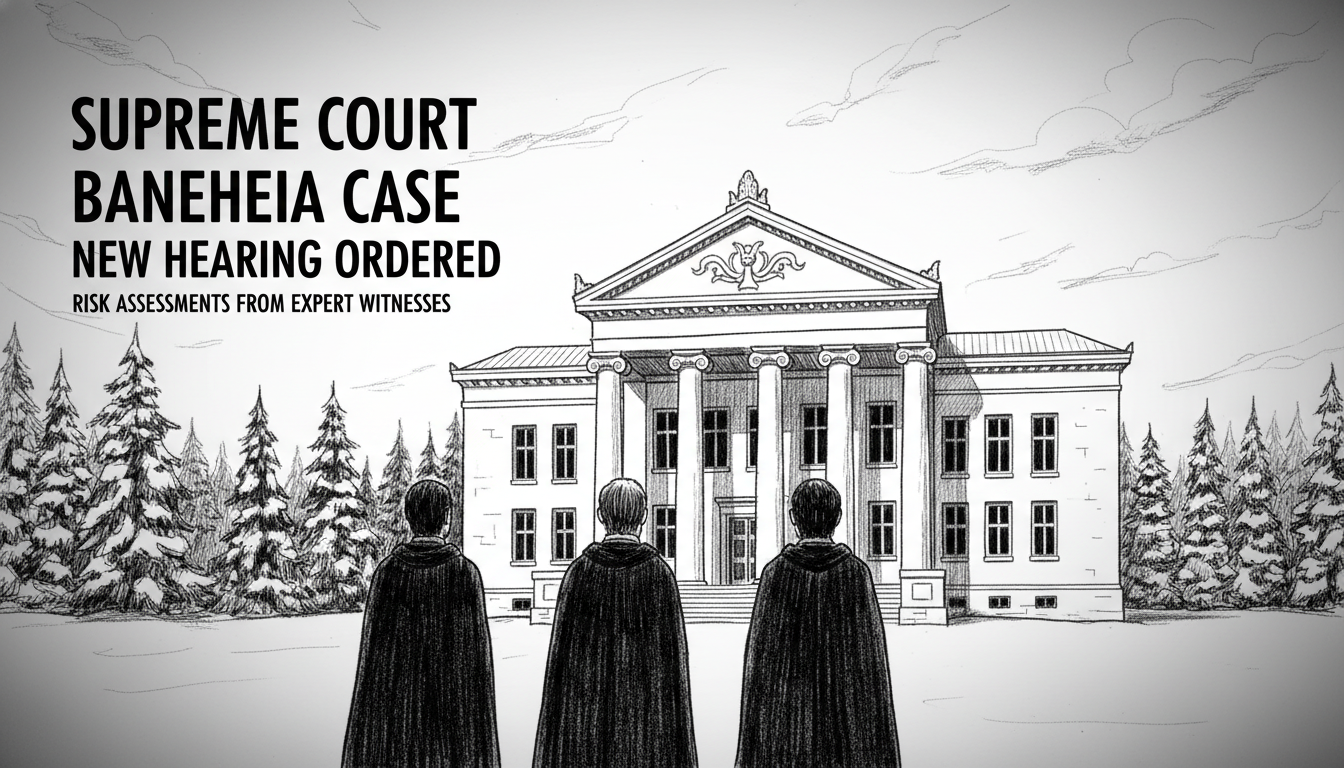Norway's Supreme Court has demanded additional information and scheduled a new hearing to determine the appropriate punishment for Jan Helge Andersen in the Baneheia case. The court seeks clarification from expert witnesses about their risk assessment regarding potential repeat offenses. This development follows Monday's Supreme Court session examining whether Andersen should receive prison time or preventive detention.
Prosecutor Andreas Schei stated that the Supreme Court primarily requested explanations from specialists about their written evaluations concerning recidivism risk. The court also asked experts to elaborate on how they weighed the time elapsed since the original crimes. Andersen's defense lawyer Svein Holden acknowledged the court's request for specialists to expand their declaration about his client.
The Supreme Court must decide between prison or preventive detention for Andersen. In June, the Gulating Court of Appeal sentenced him to two years of preventive detention. That court based its decision on expert assessments indicating high risk of new sexual offenses from Andersen. Holden maintains that two years in prison represents the appropriate punishment, describing it as a collective sentence for the 19 years Andersen originally received.
The guilt question remains settled from the Court of Appeal's ruling. That court established Andersen's responsibility for the rape and murder of both Lena Sløgedal Paulsen, age 10, and Stine Sofie Sørstrønen, age 8. These tragic events occurred in Baneheia during 2000. The new Supreme Court hearing is expected to take place after the new year period.
This case represents one of Norway's most notorious criminal investigations from recent decades. The Baneheia murders shocked the nation and prompted extensive discussions about child safety and sexual violence prevention. Norway's legal system distinguishes between ordinary imprisonment and preventive detention, with the latter focusing on protecting society from dangerous individuals.
The Supreme Court's careful approach demonstrates the complexity of balancing punishment with public safety concerns. Norwegian courts typically show considerable deference to expert psychological assessments in such cases. The extended timeline also highlights how serious criminal cases can undergo multiple judicial reviews over many years.
International observers should note that Norway's Supreme Court rarely hears criminal cases directly. Its involvement signals the legal significance of this punishment determination. The court's final decision could establish important precedents for handling dangerous offenders within Norway's justice system. The outcome will likely influence future cases involving preventive detention measures.
Norwegian law permits preventive detention for individuals deemed likely to commit serious new offenses. This measure can extend beyond ordinary prison terms when specialists document substantial recidivism risk. The Supreme Court's forthcoming decision will clarify how courts should balance time served against ongoing danger to society.

